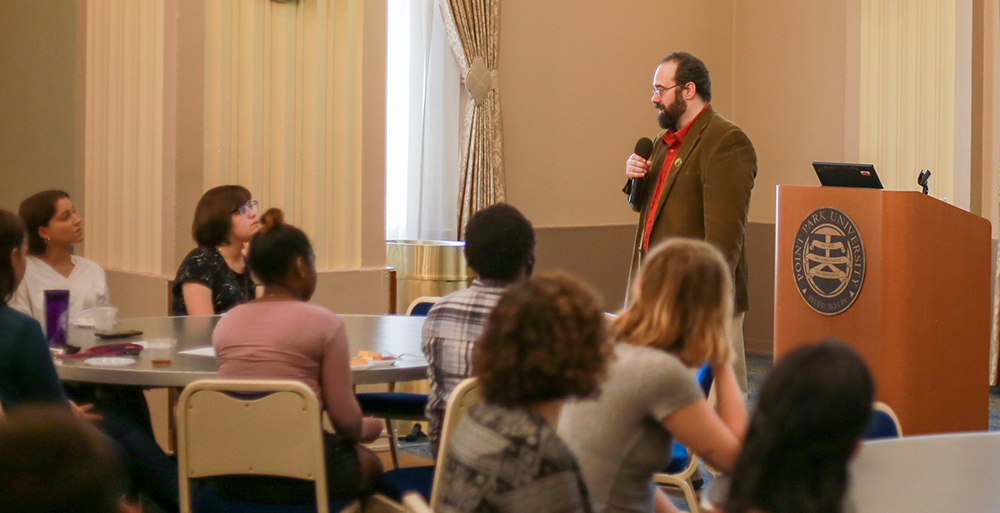Video: What Makes Point Park University's Approach to Psychology Distinctive? Monday, March 7, 2022

What are some of the unconventional concepts embedded in the Department of Psychology's curriculum?
Our program is grounded in a broadly humanistic approach to psychology, with its emphasis on an ethics of human dignity, the centrality of human rights and an optimistic view that people can change for the better, both individually and collectively. We integrate a lot of cutting-edge theory, including existentialism, psychodynamic theory, critical theory and post-structuralism. The theories we draw from are ones we prefer because they integrate psychological and sociocultural levels of analyses for a more holistic view of the person, as understood within their individual and collective contexts.
We also integrate transpersonal, spiritual and indigenous perspectives into our curriculum, including, for example, the study of mindfulness and its benefits for health and well-being, as well as positive social transformation, especially to foster more harmonious and compassionate relationships.
Describe the importance of understanding community in practicing psychology.
It is simply not sufficient to attempt to fix every suffering person one person at a time. Of course, helping individuals in psychotherapy, for example, is a very important thing to do. However, we need to go upstream and look for the conditions that create suffering in the first place. We work to prevent suffering, not just wait to react once a person is damaged. We can do this by targeting social conditions that give rise to mental health crises. We need to help people who are suffering from abuse, addiction, consumerism, alienation, exploitation, discrimination, post-traumatic stress and so forth. However, we also need to identify the social conditions that give rise to those conditions and work to help prevent the mental health problems from emerging in the first place.
How is the significance of context emphasized throughout our psychology programs?
Our program brings sophisticated theoretical lenses to problems of mental health so that we can recognize contextual factors. They are easy to miss, because we see people, not their situations. Yet, people never exist outside of a situation. If we miss the social and cultural context, we will too easily stigmatize people. We will miss how their behavior can be seen to be very meaningful and even ingenious in their styles of adapting to often very complex and difficult situations. By taking the situation into account, this gives us a capacity to empathize with our patients rather than blame them for the suffering they are bearing when they seek our help.
What are the benefits of students learning through the Department of Psychology's humanistic approach?
Simply put, the humanistic approach is a more ethical approach to psychology. While other approaches to psychology are well-intentioned, their methods and practices can nevertheless treat people as if they are objects to be manipulated and controlled. To that extent, they do not fully respect their autonomy, capacity for self-determination and dignity as people.
If you just reduce a person to their brain chemistry and think you have gotten to the bottom of the meaning of a person's suffering, you have passed over into a very objectifying view of people. Yes, we have brains and bodies, which are essential for our functioning, but we are more than meat and bones. We are producers of meaning, creative generators of cultural innovation, agents and not mere automatons.
We are influenced by cultural and social factors, but we are not merely determined by our social conditions, as alienating as they may be. We have the capacity to work together collectively as agents of social change to make things happen, and with the right ethics and valid forms of inquiry, we can do good things for ourselves, for each other and for the world.

